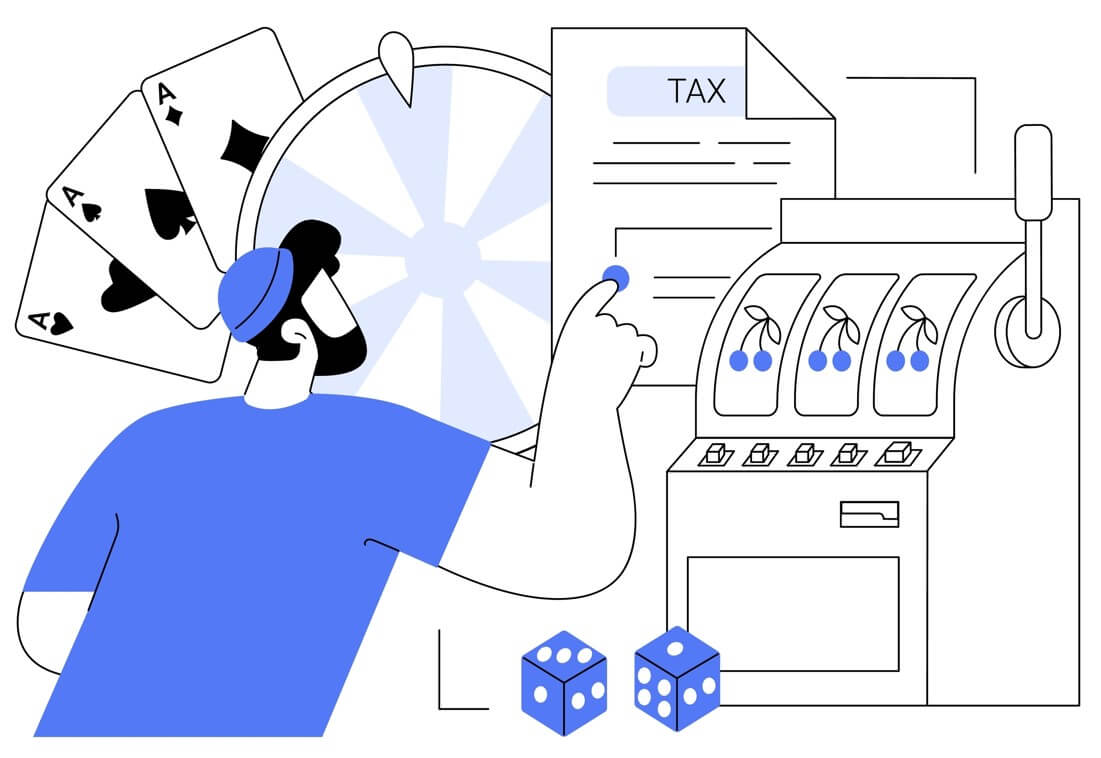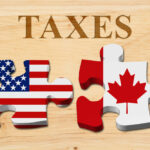
A Closer Look at the Legal Landscape of Online Slots in Europe
Online slots have taken the world by storm, and Europe is no exception! With thousands of players spinning the reels of their favourite games every day, it’s clear that this is one trend that’s here to stay. But as with any popular industry, the legal landscape can be a bit tricky to navigate.
You are lucky to have stepped here because in the following minutes we will take a closer look at everything you need to know about legal online slots gambling in Europe. From the regulatory bodies that oversee the industry to the legal status of online slots in different European countries, you will find a lot of details about it further.
Of course, we’ll be spicing things up with some insider insights and expert analysis to keep you engaged throughout. Are you ready to start this journey? Fasten your seatbelts, we are going right below:
The Legal Framework of Online Slots in Europe
The legal framework of online slots in Europe is a complex web of laws, regulations, and licensing requirements. At the heart of this framework are the regulatory bodies that oversee the industry and ensure that providers comply with legal and ethical standards. Some of the key regulatory bodies in Europe include the UK Gambling Commission, the Malta Gaming Authority, and the Gibraltar Regulatory Authority, among others.
Each of these bodies has its own set of rules and regulations that providers must follow to operate legally. Additionally, there are different legal frameworks and laws that govern online slots in various European countries, which can sometimes lead to inconsistencies and challenges for both players and providers. Understanding the legal framework is crucial for anyone looking to enter the online slots industry in Europe, and it’s important to stay up to date on any changes or updates to the regulatory landscape.
Are Online Slots Legal in Europe
Are online slots legal in Europe? This is a common question that players and providers alike ask when entering the online slots industry. The answer is not as straightforward as one might think. While some countries in Europe have legalized and regulated online slots, others have not, creating a complex and ever-changing legal landscape. So, what is the current state of online slots legality in Europe?
Well, it depends on the country you’re in! In the UK, for example, online slots are legal and heavily regulated by the UK Gambling Commission. Meanwhile, in countries such as Germany and France, the legality of online slots is a bit more complicated, with different laws and regulations depending on the specific state or region.
It’s crucial to research the legal status of online slots in your country before diving into the world of online gaming. So, let’s take a closer look at the legal landscape of online slots in Europe and see the licensing process in the following section.
Regulating Online Slots in Europe: Key Features of the Licensing Process
Regulating online slots is a complex process that involves various regulatory bodies and a set of rules and regulations that providers must follow to obtain a license. The licensing process is a crucial step in ensuring that providers operate legally and ethically, and it’s important to understand the key features of this process.
Firstly, providers must apply for a license from the relevant regulatory body in their country of operation. This process typically involves submitting detailed information about the provider, including financial records, ownership structure, and management personnel. Once the application is received, the regulatory body will conduct a thorough review to ensure that the provider meets all of the legal and ethical standards required for licensing.
Some of the key features of the licensing process include regular inspections and audits to ensure ongoing compliance, the payment of fees and taxes, and the need to meet strict responsible gambling requirements. Overall, the licensing process is an essential component of regulating online slots in Europe and ensuring that providers operate in a safe, responsible, and legal manner.
Online Slots and Consumer Protection in Europe
As online slots continue to grow in popularity in Europe, consumer protection has become a key concern for regulators and industry players alike. It’s important to ensure that players are protected from potential harm associated with online gambling, and that providers operate in a safe and ethical manner. To address these concerns, various measures have been put in place to protect consumers of online slots in Europe.
One such measure is the requirement for providers to promote responsible gambling, which includes measures such as setting deposit limits, offering self-exclusion options, and providing access to support services for problem gambling. Also, regulatory bodies in Europe closely monitor providers to ensure that they are operating in a fair and transparent approach, with strict requirements for player account segregation and data protection. Our experts from GuruCasinoBonus scrape some details about how much data players need to start playing, so it is a good idea to check it before placing your bets.
Challenges Faced by Online Slot Providers in Europe
While the online slots industry in Europe is booming, it’s not without its challenges. Providers face a range of challenges in complying with the various laws and regulations that govern the industry, which can vary significantly from country to country. Let’s see the most risky situations about the regulations in Europe:
- Balancing player demand with responsible gambling practices: While players are always looking for exciting and innovative games, providers must balance this demand with the need to maintain responsible gambling practices. This includes measures like setting deposit limits, providing access to support services for problem gambling, and ensuring fair gameplay. Providers must invest in technology to ensure fair and transparent gameplay while offering exciting and innovative games to keep players engaged.
- Increasing competition: The online slots industry in Europe is highly competitive, with new providers entering the market regularly. This makes it difficult for providers to stand out and attract new players. Providers must invest in marketing and technology to differentiate themselves from the competition.
- Meeting the needs of a diverse player base: Online slots players in Europe come from diverse backgrounds and have different preferences when it comes to gameplay, themes, and features. Providers must invest in market research and technology to understand the needs of their players and tailor their offerings accordingly.
- Managing payment processing: Providers must be able to offer convenient and secure payment methods for players, while complying with various financial regulations. This includes ensuring that player funds are held in a separate account, providing secure payment methods, and complying with anti-money laundering regulations.
- Dealing with fraud and cybersecurity risks: Online slots providers must protect their platforms and players from fraud and cybersecurity risks, which can be costly and damaging to their reputation. Providers must invest in robust security measures to protect against data breaches, hacking, and other cybersecurity threats.
- Adapting to changes in player preferences: Players’ preferences for online slot games can change rapidly, and providers must adapt quickly to keep up with these changes. This requires investment in market research and innovation to offer new and exciting games that meet players’ changing preferences.
- Building trust and credibility with players: In a highly competitive market, providers must work to build trust and credibility with their players. This can be achieved through transparent and fair gameplay, responsible gambling practices, and offering high-quality customer support.
- Navigating cultural differences: Online slot providers in Europe must navigate cultural differences in terms of language, preferences, and gaming regulations. This requires investment in market research and localization to ensure that offerings are tailored to the needs and preferences of players in each country where they operate.
There is increasing competition in the online slots industry, which can make it difficult for providers to stand out and attract new players. Despite these challenges, the online slots industry in Europe continues to thrive, with innovative providers and regulators working together to ensure a safe and responsible gaming experience for players.
Future Outlook for Online Slots in Europe
As more players turn to online gaming for entertainment, the demand for new and exciting games will continue to rise. In response, providers will need to invest in cutting-edge technology and innovative game design to stay ahead of the curve.
Another major trend that is likely to shape the future of online slots in Europe is the rise of mobile gaming. As more players access online slots through their mobile devices, providers will need to optimize their platforms for mobile gameplay, including offering intuitive interfaces and fast, reliable performance.
Regulatory changes will also play a role in shaping the future of online slots in Europe. In recent years, there has been a trend towards greater regulation of online gambling in Europe, with many countries introducing stricter rules and requirements for providers. This trend is likely to continue, with new laws and regulations expected to be introduced to protect consumers and prevent problem gambling.
FAQs
- What regulatory bodies oversee online slots in Europe?
There are several regulatory bodies that oversee the online slots industry in Europe, including the UK Gambling Commission, the Malta Gaming Authority, the Gibraltar Regulatory Authority, and many others. Each regulatory body has its own set of rules and regulations that providers must follow to operate legally.
- How can I ensure that I’m playing online slots legally in Europe?
To ensure that you’re playing online slots legally in Europe, make sure to choose a reputable provider that is licensed by a regulatory body in your country of residence. You can also check with the regulatory body to verify that the provider is in compliance with all legal and ethical standards.
- Are there any risks associated with playing online slots in Europe?
As with any form of gambling, there are risks associated with playing online slots. However, playing with a reputable and licensed provider can help to minimize these risks. It’s also important to practice responsible gambling and set limits on your play to avoid developing a problem with gambling.
- Can I play online slots in Europe if I’m not a resident of a European country?
This depends on the specific laws and regulations in each country. Some countries allow non-residents to play online slots, while others do not. It’s important to research the laws and regulations in your specific location before playing.


